
“CityNews” legal columnist and former barrister HUGH SELBY is commentating regularly on the Sofronoff Inquiry’s public hearings, focusing upon the advocacy and witness performances.
The Board of Inquiry, led by Commissioner Walter Sofronoff KC, a former president of the Queensland Court of Appeal, was established by the ACT government in December to examine how police, prosecutors and a victim support service handled allegations made by Brittany Higgins against her former colleague Bruce Lehrmann.
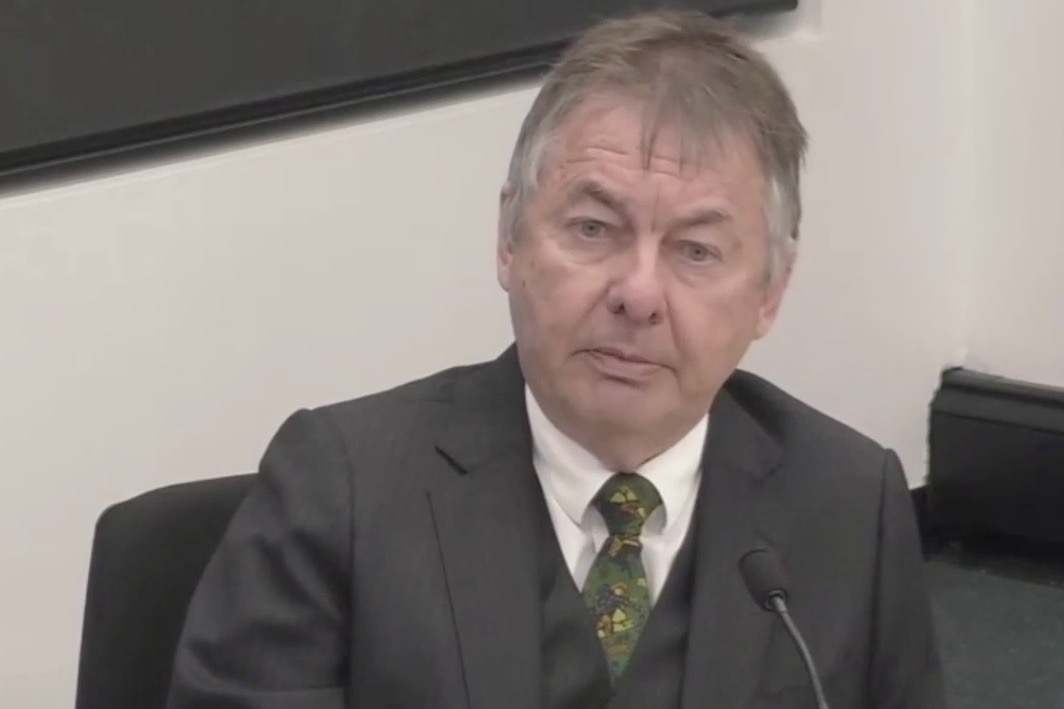
“The commissioner, who has been so scrupulous since the start of these proceedings to maintain a smooth tone and unchanging mien, altered both his tone and his mien. An advocate who fails to recognise the import of not just the ruling, but how it is given, is doomed.”
THURSDAY was the time for the police to sink or swim. First up was Senior Constable Emma Frizzell, a police investigator of the Higgins’ complaint.
She swam strongly for hour after hour and was not put off by Mark Tedeschi KC’s (advocate for DPP Shane Drumgold) attempts to pull her beneath the waves.
She was followed by Acting Assistant Commissioner Joanne Cameron. She wears her rank and experience very comfortably. Questions were easily, persuasively answered. She speaks with an authority that reflects her experience and insight. Her cross-examination continues tomorrow, Friday,
This commentary outlines the main topics addressed on Thursday, along with a critique of how that was done.
But first a look at how witness confidence affects their performance.
The question of witness confidence
Confidence is such a commonly used expression that we lose sight of its importance to each of us.
The lack of it, or the loss of it, profoundly affects how we behave and how others relate to us.
A reason that winners win is that their earlier wins boost their confidence to do it again.
Any of us have a level of confidence in ourself. Separate from that we can have a level of confidence in something we have done.
Those readers who have dipped into the Sofronoff Inquiry livestream may have seen how changing confidence affects witness performance.
Remember Superintendent Moller’s days in the box. In hindsight we can see that he was always confident about both his conduct and that of his investigators.
However, as observed in earlier reports, his personal confidence rose while he gave evidence. As time passed and it was clear to him, and to us, that he could respond credibly and fully to all questions, he became more relaxed, he could grin, and finally he could turn and interact directly with Commissioner Sofronoff.
The prize for his performance – and it was a top-rate performance – was the commissioner wrapping up some points to give Steve Moller the last, memorable words.
The usual police experience of giving evidence is that there will be few observers. The public gallery is so often empty or has two or three people coming and going. In “sexual assault” trials the court is closed for the evidence of the complainant.
This inquiry is a different experience. The hearing room is packed. The media is there, waiting for the story. The witness cannot avoid seeing both them and all the other advocates, some of whom may want to ask questions.
Given that background, Senior Constable Frizzell’s performance today was impressive. She is the youngest, and earliest-career witness. She not only survived, she got stronger as the questioning went on.
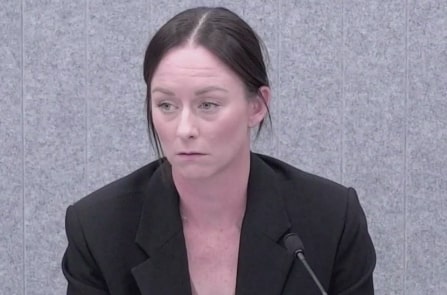
The questions to investigator Frizzell
Ms Frizzell, senior constable, was one of the investigative team for Ms Higgins’ allegations. Her evidence was introduced by Joshua Jones, junior counsel assisting (CA).
Throughout her hours in the witness box she was attentive, clear and unflustered. As to the importance of her body language, and how late it was expressed, see much later in this report.
The CA explored with her how the process of identifying material to be given to the DPP and the defence was developed; that is, the disclosure issues.
Unfortunately, he didn’t say so. We had to infer it.
Just as we would better follow if the agenda is shared with us, so is the witness assisted by being told the route and the stopping/topic transition points along the way. The witness then has more confidence that they can perform well. The witness also knows there is breathing space along the way as one topic gives way to another.
The CA took her to some correspondence between her and other officers that shows how “disclosure lists” (to go to the office of the DPP and the defence) were developed.
She recalled a discussion with ODPP officers about the “discrepancy review” document, which contrasts information from Ms Higgins with other evidence.
Later, during cross-examination, she explained the utility of “the evidence matrix” as an investigative tool that records the state of the evidence (strengths and weaknesses).
Ms Frizzell only learned during this inquiry that a document intended for the DPP was mistakenly sent to ACT Legal Aid (who were then acting for the defendant).
Likewise, that’s how she found out that she had omitted a line of information from one document as she was “cutting and pasting” from another document.
An objection was taken by Mr Tedeschi to a question from the CA about “a discussion”. The commissioner was “against the objection”. That ruling was not a surprise.
More informative was that the commissioner, who has been so scrupulous since the start of these proceedings to maintain a smooth tone and unchanging mien, altered both his tone and his mien. An advocate who fails to recognise the import of not just the ruling, but how it is given, is doomed.
It was Ms Frizzell who obtained Ms Higgins’ counselling records, with Ms Higgins’ consent. This happened because Ms Higgins mentions in those records to whom she complained. Hence it goes to what is known as “complaint evidence” (being to whom and when the complainant shared information about an alleged assault upon them).
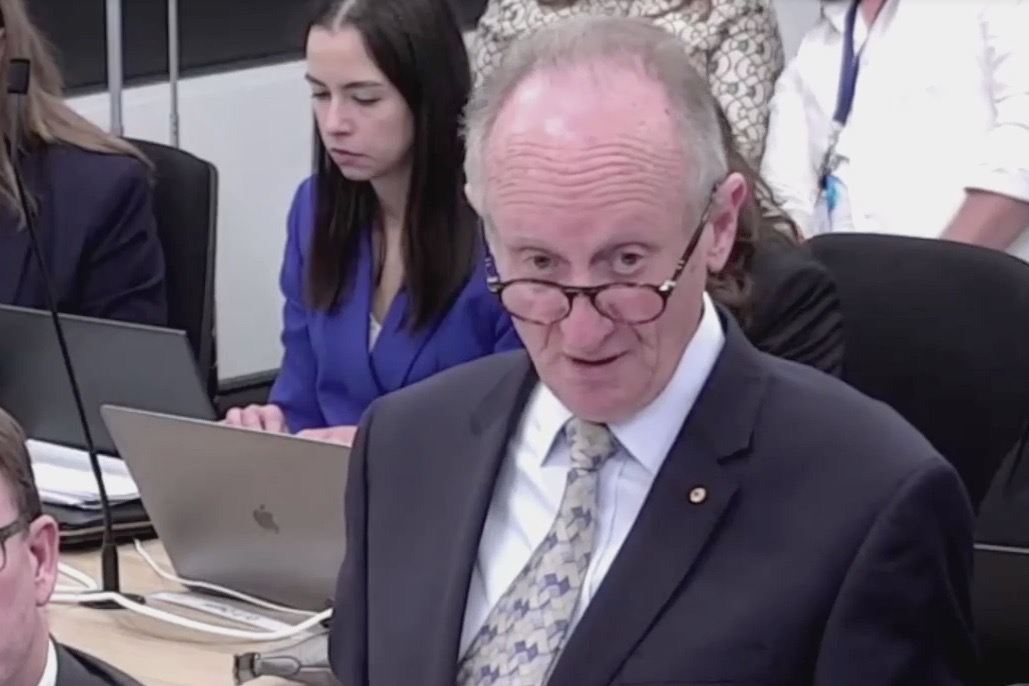
The questions in cross-examination
Mr Tedeschi cross-examined. He started with what she believed to be the test for charging. She quickly conceded, without any question, that having watched these inquiry proceedings her earlier view was wrong (her earlier view was too high a threshold).
Ms Frizzell explained “the loss of confidence” among investigative officers. This was in response to an added layer of internal review as to whether to charge or not to charge. She denied the loss of confidence was primarily caused by the actions of the ODPP.
She explained her concerns about proceeding to court on too little evidence. This reflected her experience of seeing the devastating effect of an acquittal upon a complainant. As that had happened when she thought the case was strong, she was worried about cases proceeding on even less evidence. Her explanation was persuasive.
Mr Tedeschi then raised with her the evidence that related to what may have happened to Ms Higgins at Parliament House.
He put to her that an aspect of the defendant’s account, that he had left Parliament House without seeing her again after they went to separate rooms, “corroborated” Ms Higgins’ account as to a lack of consent or recklessness as to whether there was or was not consent. Her answer was, “No”. He did not follow up.
Taken to the role of the Victims of Crime Commissioner, Ms Heidi Yates, Ms Frizzell pointed out: “You can’t build a rapport with someone you can’t speak to”.
For that reason, as an investigator, she was not a supporter of having an intermediary who was the sole access point to the complainant (as happened in this case, with Ms Yates taking that intermediary role).
Asked about the breakdown in the relationship between ODPP and police she pointed to the ODPP seeking CCTV video from Parliament House as being the time when that happened for her. That CCTV could not be found.
She had “personal concerns” about aspects of Ms Higgins’ evidence; however, her personal concerns were irrelevant to doing her job, namely the investigation. She continued to assist the ODPP.
Asked about the “disclosure statement”, she said it was one of the first she had done. It was made more difficult by the “sheer volume of the materials”.
Asked questions that required her only to agree that certain correspondence was hers, the commissioner interrupted to let the witness know the purpose of these questions. So easy to do and so beneficial to both the witness and all listeners.
The questions to wonder: ‘What’s the point?’
There have now been many hours of cross-examination by Mr Tedeschi KC. This is adding up his cross-examination of defence advocate Steven Whybrow SC, Supt Scott Moller and Senior Constable Emma Frizzell.
It’s possible that the purpose or purposes of this laborious, tedious trawling through documents that are already in evidence has been explained in closed session. If so, the only people who don’t know “why?” are those, like you and me, who are restricted to the livestream.
If that hasn’t happened, then those in the hearing room are as much in the dark as we are. That is, they too must guess. That’s undesirable because it means a decision to also cross-examine the witness, or – in the CA’s case – to re-examine the witness, is lacking some basic information, namely: “How does the cross-examiner intend to use the answers in closing submission?”
Remember that the contents of documents that are in evidence (as is the case here) speak for themselves, unless there is evidence that the plain meaning was not what was intended.
An example of this situation arose in the later questioning by the CA of Acting Assistant Commissioner Cameron: what she wrote in a late-night email to the ODPP was harsher than what she meant (see below).
From this it follows that submissions should draw from the contents of documents plus the answers from successful, targeted cross-examination questions about particular documents.
There is no downside to being explicit about the purpose and then taking a witness to the document or documents in which the cross-examiner intends to demonstrate that a particular interpretation should be adopted. This particular interpretation may be to positively advantage the cross-examiner’s client, or show a specific disadvantage to the witness or the “witness’s interest”.
Unfortunately, the livestream does not show us the faces of the other lawyers in the hearing room. If it did so, we could glean what they thought about the questioning; for example, are they engaged or disengaged with the exchange between witness and advocate?
Finally, at almost the final question comes the purpose of all the time spent” “Do you agree that the two [disclosure] documents were confusing?”. Hallelujah! This could have been stated at the outset: “I am going to ask you questions about the differing versions of the disclosure documents and look at what happened because of those differences.” It’s that simple.
The questions around the role of Heidi Yates
Mr Tedeschi asked about Ms Frizzell’s interview of Victims of Crime Commissioner Yates. He wanted to impugn her credibility as an investigator and to suggest an improper purpose in that interview; that is, to remove Ms Yates as the support person. Strongly denied.
Before that denial he asked questions that had Ms Frizzell clearly state the plausible reasons for the interview, namely, to have a witness who was independent of police and Ms Higgins tell what she could about images that were known to be missing from Ms Higgins’ phone. Based on those answers he should have put aside his wish to impugn her.
Ms Yates’ counsel, Kirsten Edwards (replacing Dr Peggy Dwyer from yesterday) asked questions that had Ms Frizzell support Supt Moller’s revised assessment of the positive value of Ms Yates’ involvement.
There was a lovely line: “[Ms Yates] brought in some biscuits for you?” Answer: “Yes”. What’s more, Ms Edwards also gained more body language from Ms Frizzell, body language that was positive throughout. It was well done.
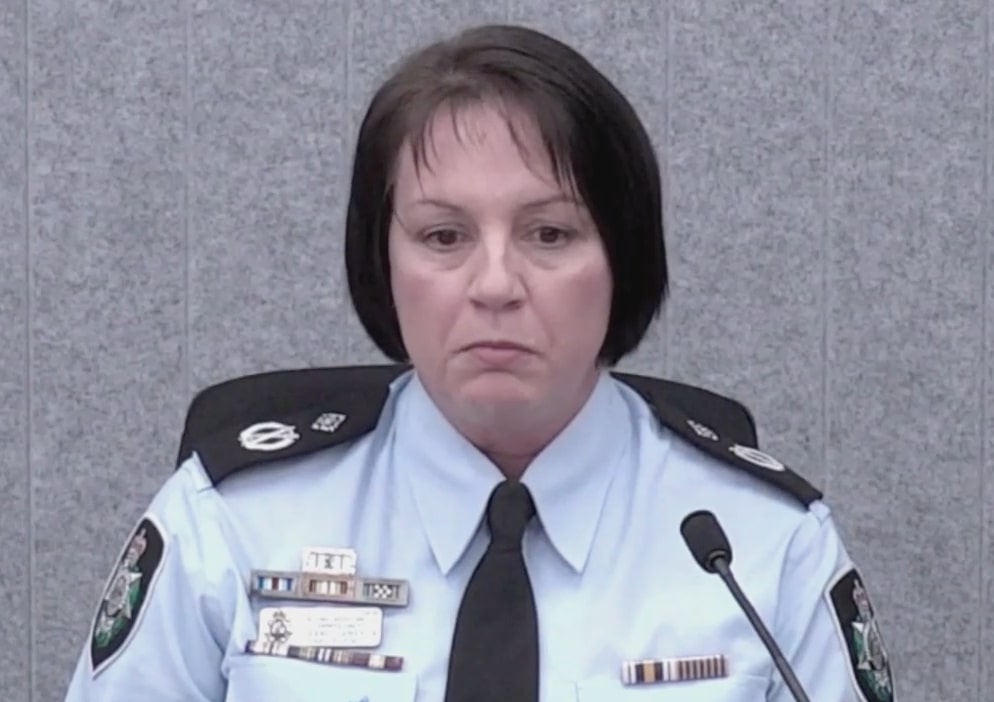
The start of questions for Assistant Commissioner Cameron
Eleanor Lynch, junior counsel assisting, introduced Acting Assistant Commissioner Joanne Cameron. Ms Cameron observed that the relationship between the ODPP and police “had diminished” when she returned to ACT Policing in late 2021 (that is, after Mr Lehrmann had been charged).
She could compare it with her prior experience in ACT Policing over more than 20 years. “Tension” was being reported to her.
She was asked about Mr Whybrow’s approach to Supt Scott Moller during the trial. She was worried of a possible perception, though it would be quite unfair, that her police officers were colluding with the defence. Therefore, she decided that such contact would have to be via ODPP.
She agreed that it is usually proper for defence to contact police. However, there had been months of her noting criticisms, in media and outside the courts, of police conduct in the Higgins matter. (The ACT courts and Civic police station are on opposite sides of the road.)
Looking at a late-night email that she sent to the DPP that defence inquiries to the police would be via his office, she said that her words in that email were too harsh. It was never her intention, as a general proposition, to cut off police and defence contact.
Brin Anniwell, junior advocate for DPP Drumgold, began her cross-examination of Ms Cameron. She started by asking about the failure to follow the usual brief adjudication process, that being the internal quality assurance process of police briefs before they go to the parties.
Ms Cameron pointed out that the direct service of the brief on the defence occurred before she returned to ACT Policing. The advocate did not share either topics or aims.
We can but hope that when cross-examination resumes on Friday we will be told those aims and the route.
“CityNews” legal commentator and former barrister Hugh Selby is writing running commentary on the Sofronoff Inquiry’s public hearings, focusing upon the advocacy and witness performances. The “CityNews” coverage of the inquiry, including his daily reviews, are here.
Hugh Selby’s free podcasts on “Witness Essentials” and “Advocacy in court: preparation and performance” can be heard on the best known podcast sites.
Who can be trusted?
In a world of spin and confusion, there’s never been a more important time to support independent journalism in Canberra.
If you trust our work online and want to enforce the power of independent voices, I invite you to make a small contribution.
Every dollar of support is invested back into our journalism to help keep citynews.com.au strong and free.
Thank you,
Ian Meikle, editor



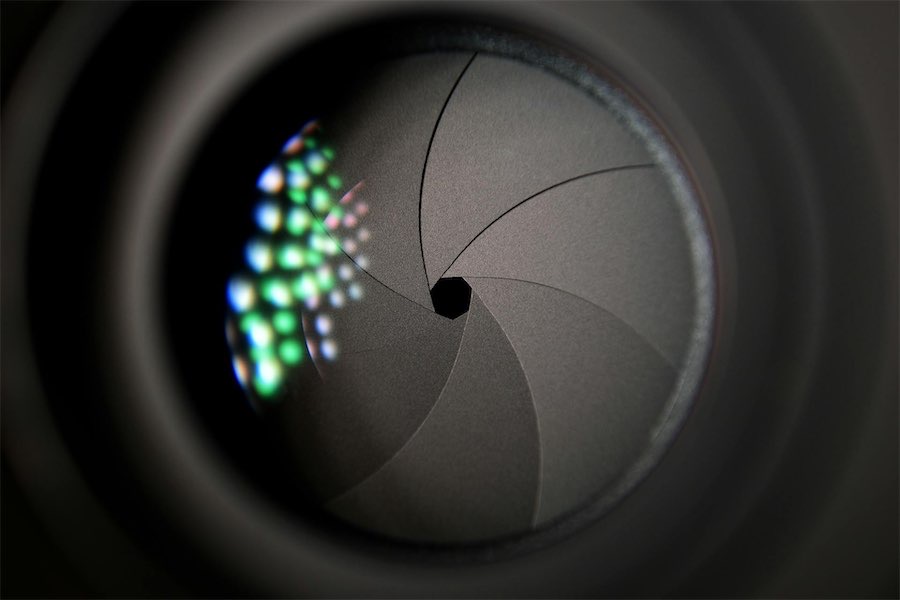

Leave a Reply